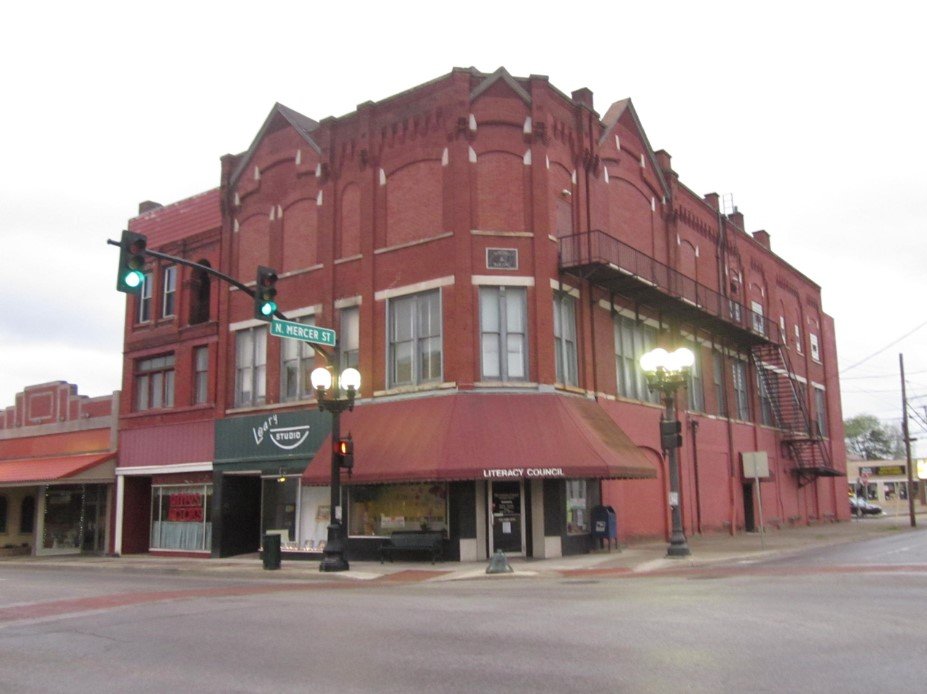In a recent meeting, the Greenville City Council decided not to take any immediate action on earmarking funds generated from marijuana sales. The discussion centered around how to allocate the revenue from the state marijuana excise tax, which is expected to increase as more marijuana retailers open in the city. Councilman Larry Moss proposed that the funds be directed to support neighborhoods north of the Flat River, but the council did not reach a consensus. This decision leaves the future allocation of these funds uncertain, sparking further debate among council members and residents.

Debate Over Fund Allocation
The proposal to earmark marijuana tax funds for specific neighborhoods has sparked a lively debate among Greenville council members. Councilman Larry Moss argued that the neighborhoods north of the Flat River are in dire need of investment and support. He emphasized that these areas have been historically underserved and could greatly benefit from the additional funds. Moss’s proposal aimed to use the revenue to improve infrastructure, public services, and community programs in these neighborhoods.
However, not all council members agreed with Moss’s proposal. Some argued that the funds should be used to benefit the entire city rather than focusing on a specific area. Mayor Jeff Scoby expressed concerns about the fairness of earmarking funds for one part of the city, suggesting that a more inclusive approach would be more beneficial. This disagreement highlights the challenges of balancing the needs of different communities within the city.
The council’s decision to take no immediate action reflects the complexity of the issue. While there is a general consensus that the marijuana tax revenue should be used to improve the city, there is no agreement on the best way to allocate these funds. This ongoing debate is likely to continue as more marijuana retailers open and the revenue increases.
Potential Impact on the Community
The potential impact of the marijuana tax revenue on the Greenville community is significant. If allocated effectively, these funds could provide much-needed resources for various projects and initiatives. For the neighborhoods north of the Flat River, the proposed earmarking could mean substantial improvements in infrastructure, public safety, and community services. These enhancements could help address long-standing disparities and promote more equitable development across the city.
On the other hand, a city-wide allocation of the funds could support broader initiatives that benefit all residents. This approach could include investments in public transportation, parks and recreation, and city-wide safety programs. By spreading the benefits more evenly, the council could ensure that all parts of Greenville see improvements from the marijuana tax revenue.
The council’s decision will ultimately shape the future of Greenville’s development. As the city continues to grow and evolve, the allocation of these funds will play a crucial role in determining the quality of life for its residents. The debate over earmarking versus city-wide allocation is a reflection of the broader challenges faced by many municipalities in managing new sources of revenue.
Next Steps for the Council
With no immediate action taken, the Greenville City Council will need to revisit the issue of marijuana tax fund allocation in future meetings. Council members will likely continue to discuss and refine their proposals, seeking a solution that balances the needs of different communities within the city. Public input will also play a critical role in shaping the council’s decisions, as residents voice their opinions on how the funds should be used.
In the meantime, the city will begin to see the financial benefits of the marijuana excise tax as more retailers open. This revenue presents a unique opportunity for Greenville to invest in its future and address pressing community needs. The council’s challenge will be to develop a strategy that maximizes the positive impact of these funds while ensuring fairness and equity.
As the debate continues, it will be important for council members to consider the long-term implications of their decisions. The allocation of marijuana tax revenue has the potential to transform Greenville, but only if managed thoughtfully and strategically. The council’s ability to navigate this complex issue will be a key factor in the city’s future success.
In conclusion, the Greenville City Council’s decision to take no immediate action on earmarking marijuana funds reflects the complexity of the issue and the need for further discussion. The potential impact of these funds on the community is significant, and the council’s challenge will be to find a solution that balances the needs of different neighborhoods while promoting overall city development.
David Johnson is a respected writer known for his expertise in crafting compelling articles about cannabis. With a passion for exploring the intersection of cannabis, health, and wellness, he sheds light on the therapeutic properties and potential uses of this versatile plant. David’s in-depth analysis and thought-provoking commentary offer readers a deeper understanding of the evolving landscape of cannabis legislation, consumption methods, and industry trends.








